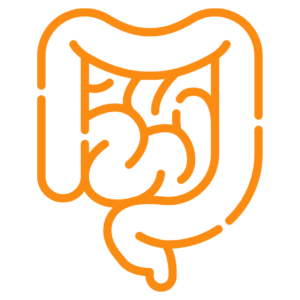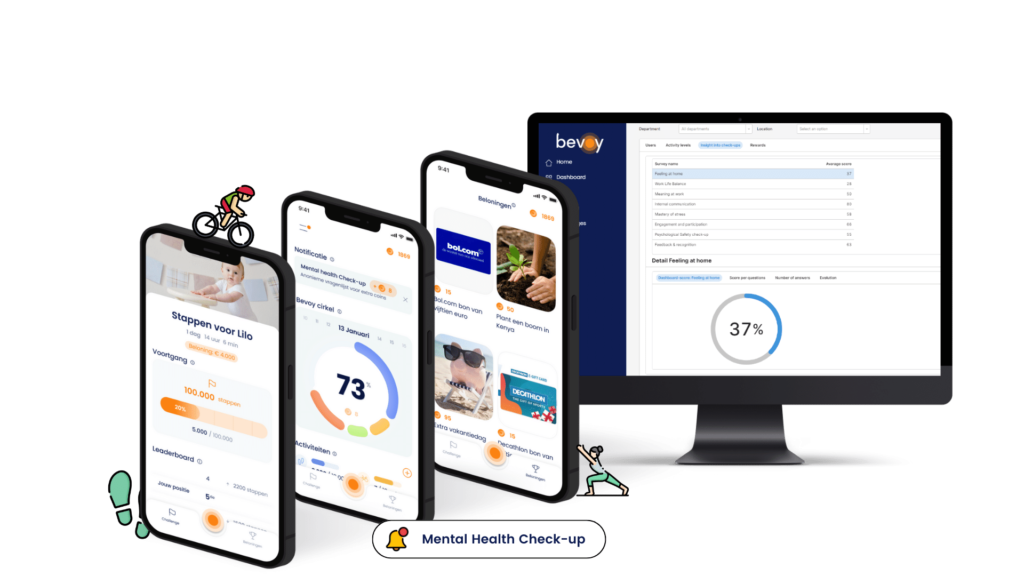1 - Eat as diverse as possible
There are hundreds of types of bacteria in your gut. Each species plays a different role in your health and needs different nutrients to grow. Therefore, all of these bacteria are therefore important for healthy gut health.
A healthy microbiome is best as diverse as possible. The more types of bacteria you have, the better they can contribute to various health benefits (1, 2).
Unfortunately, the Western diet is not very varied, but rich in fat and sugar. It is estimated that 75% of the world’s food is produced from only 12 plant species and 5 animal species. Therefore, to keep the diversity in your gut flora high, it is important to eat as diverse a diet as possible (3).
Be critical of yourself for a moment. How many different types of vegetables make it onto your menu each month? And when was the last time you ate “forgotten vegetables” like parsnips or salsify? Challenge yourself and put something outside your comfort zone on the table 😀.
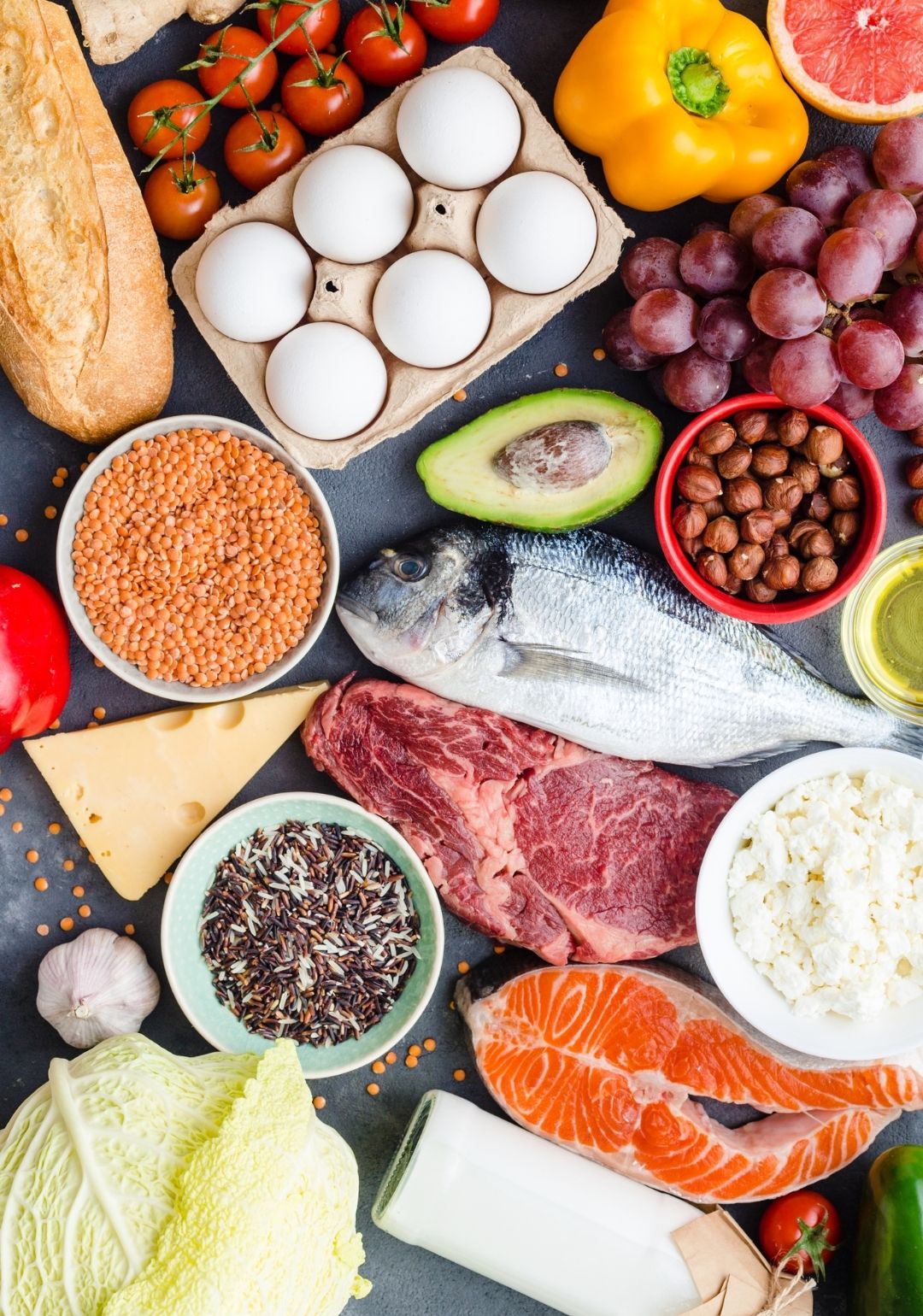
2 - Eat more fermented foods
Fermented food is very healthy, but what exactly is it? Fermentation involves the use of natural bacteria, fungi and yeasts. Examples of fermented foods/drinks include yogurt, beer, kombucha, kimchi, kefir and sauerkraut.
Thanks to the fermentation process, our bodies absorb hard-to-digest foods more easily, which makes such foods healthier for us.
In addition, many of these foods are rich in lactobacilli, a type of bacteria that also contribute to healthy gut health.
Yogurt is by far the best-known example of fermented food. It is therefore true that people who regularly eat yogurt have more lactobacilli in their intestines. They also have fewer enterobacteriaceae, a bacterium associated with inflammation and a number of chronic diseases such as diabetes and obesity (4).
Certain yogurt products also help people with irritable bowel syndrome. They can reduce the abundance of certain pathogenic bacteria (5).
So definitely consider fermented foods at your next shopping turn.

3 - Limit the use of artificial sweeteners
This seems like an obvious tip, but in our living world it is a difficult one!
In fact, artificial sweeteners are widely used as substitutes for sugar. For example, in soft drinks, fruit juice and dairy products. Like sugar, they impart a sweet taste but contain fewer to no calories.
Yet studies have shown that they do not contribute to healthy gut health.
A study in rats showed that aspartame, an artificial sweetener, reduced weight gain. It also increased blood sugar levels and decreased insulin response (6).
Another study found similar results in mice and humans. It showed to have negative effects on blood sugar levels. This is due to the artificial sweeteners causing change in the microbiome (7).

4 - Eat more foods with prebiotics
Prebiotics are foods that promote the growth of beneficial microbes in the gut.
They are mainly fiber or complex carbohydrates that cannot be digested by human cells. Instead, certain species of bacteria break them down and use them as fuel.
Many fruits, vegetables and whole grains contain prebiotics, but they can also occur on their own.
Furthermore, several studies have shown that prebiotics can promote the growth of many healthy bacteria, including bifidobacteria.
Many of these studies have been conducted in healthy people. However, some studies have shown that prebiotics can be beneficial for people with certain diseases. For example, prebiotics can lower insulin, triglyceride and cholesterol levels in obese people (8), (9).
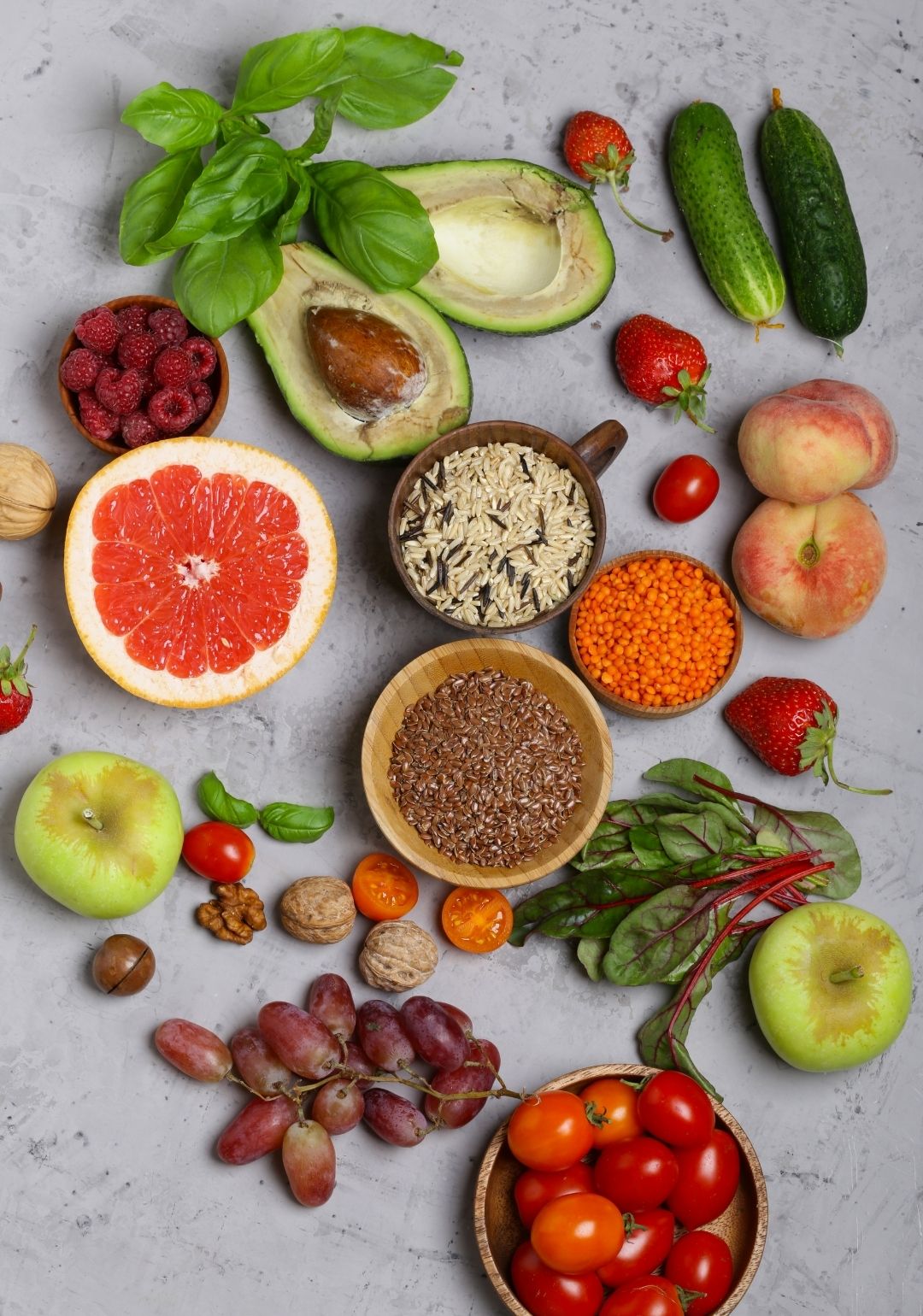
5 - Eat more whole grain foods
Whole grains are high in fiber and non-digestible carbohydrates, such as beta-glucan.
These carbohydrates are not absorbed in the small intestine. Instead, they go to the colon.
In the colon, they are broken down by the microbiome and promote the growth of certain beneficial bacteria, such as bifidobacteria, lactobacilli and bacteroidetes (10), (11), (12).
Studies show that whole grains increase the feeling of “fullness. It also reduces inflammation and risk factors for heart disease.
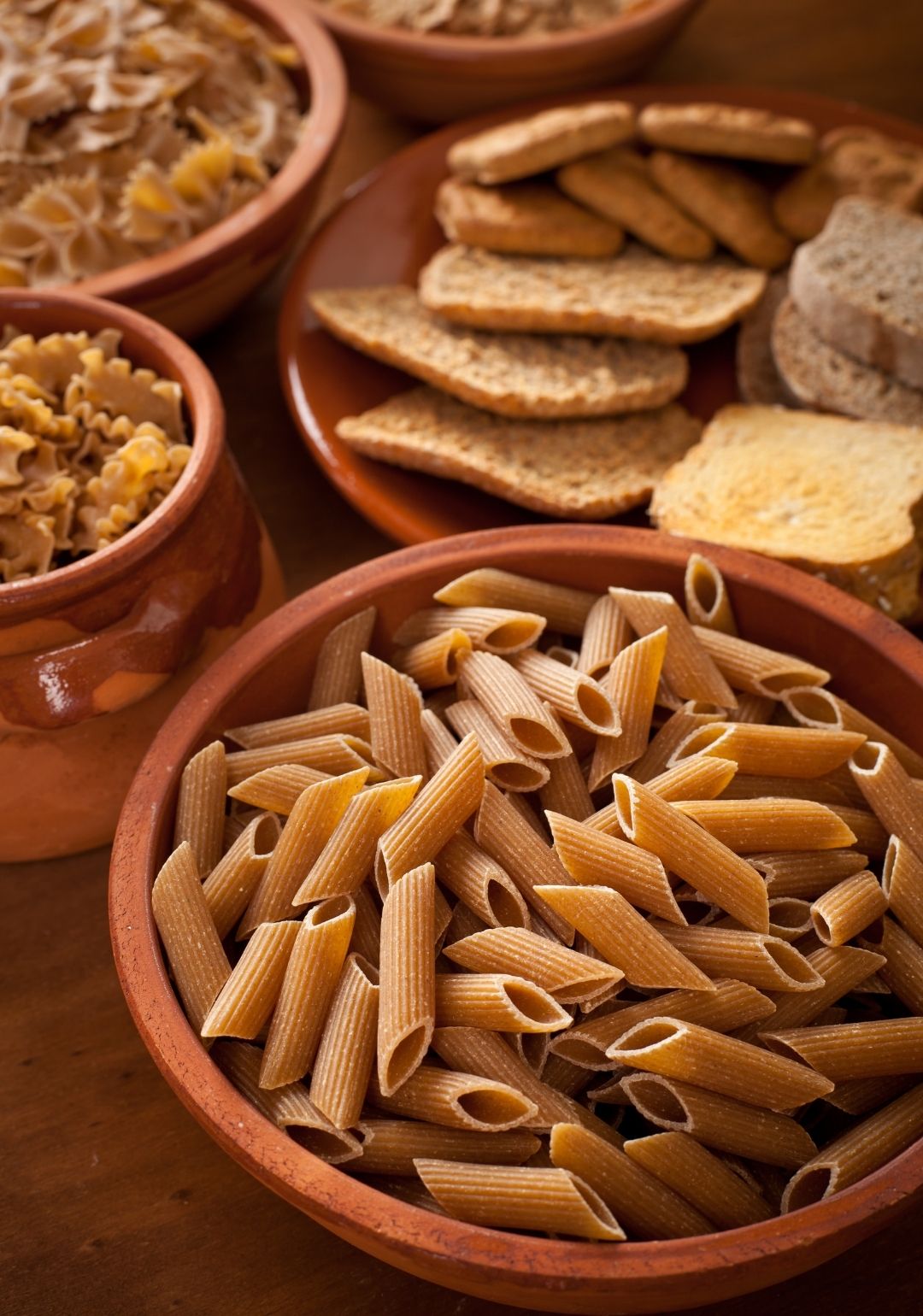
6 - Eat foods rich in polyphenols
Polyphenols are plant molecules that have many health benefits. Examples of the benefits include a reduction in blood pressure, cholesterol levels and oxidative stress (13), and a reduced risk of inflammation.
The following foods are high in polyphenols (14):
- Cocoa and dark chocolate
- Red wine
- Grape skins
- Green tea
- Almonds
- Onions
- Blueberries
- Broccoli
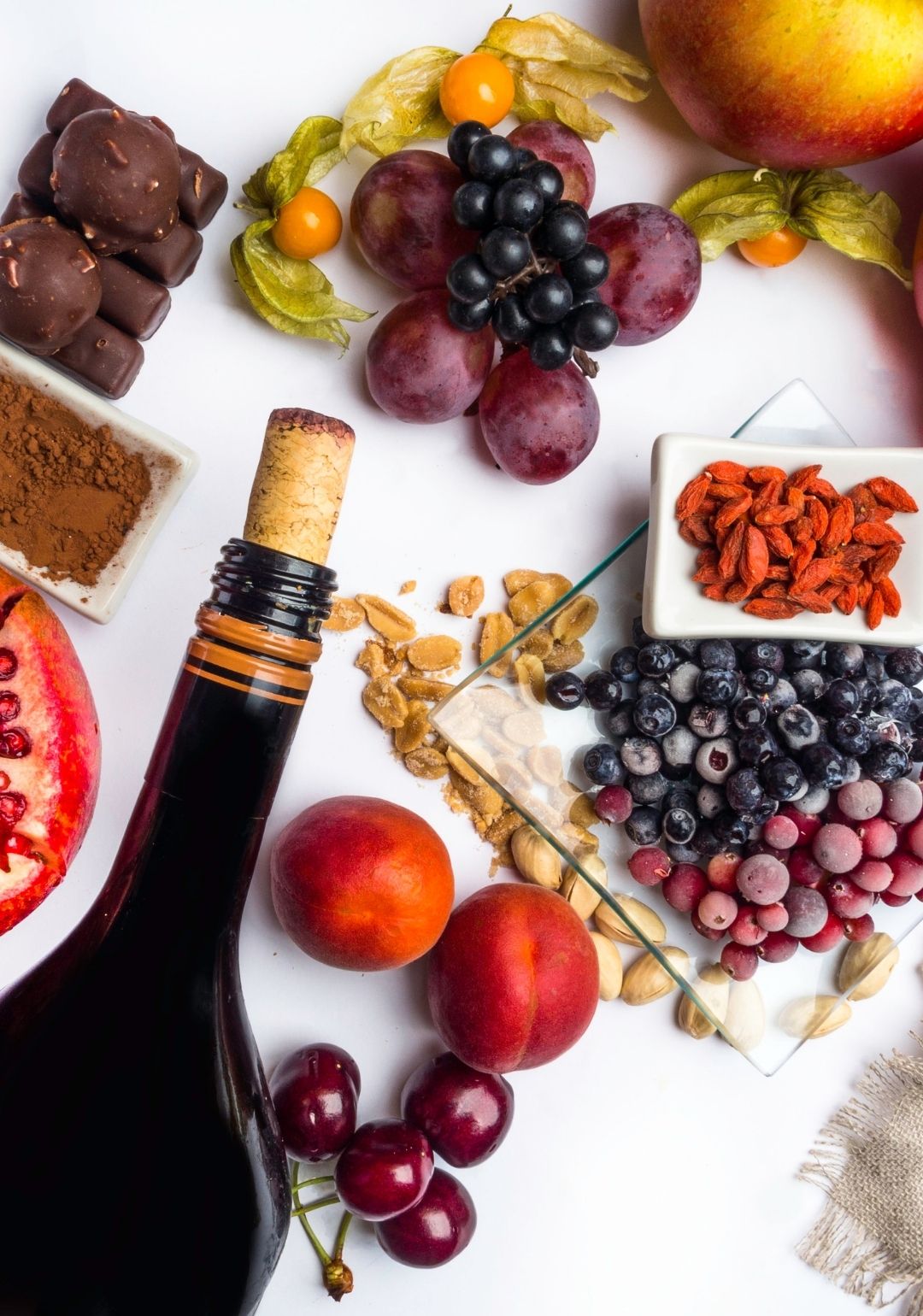
7 - Drink enough water each day
One of the most common causes of constipation is not drinking enough water. Therefore, drink plenty of water. Experts recommend drinking 1.5 to 2 liters of water a day. This can help you prevent constipation (15).
Another way to get in enough water each day is to eat fruits and vegetables. Some foods that are high in water are cucumber, zucchini, celery, tomatoes, melons, strawberries and peaches.

Resources
- Claesson, M. J., Jeffery, I. B., Conde, S., Power, S. E., O’connor, E. M., Cusack, S., … & O’Toole, P. W. (2012). Gut microbiota composition correlates with diet and health in the elderly. Nature, 488(7410), 178-184.
- Lozupone, C. A., Stombaugh, J. I., Gordon, J. I., Jansson, J. K., & Knight, R. (2012). Diversity, stability and resilience of the human gut microbiota. Nature, 489(7415), 220-230.
- Heiman, M. L., & Greenway, F. L. (2016). A healthy gastrointestinal microbiome is dependent on dietary diversity. Molecular metabolism, 5(5), 317-320.
- Alvaro, E., Andrieux, C., Rochet, V., Rigottier-Gois, L., Lepercq, P., Sutren, M., … & Doré, J. (2007). Composition and metabolism of the intestinal microbiota in consumers and non-consumers of yogurt. British journal of nutrition, 97(1), 126-133.
- Veiga, P., Pons, N., Agrawal, A., Oozeer, R., Guyonnet, D., Brazeilles, R., … & Kennedy, S. P. (2014). Changes of the human gut microbiome induced by a fermented milk product. Scientific reports, 4(1), 1-9.
- Palmnäs, M. S., Cowan, T. E., Bomhof, M. R., Su, J., Reimer, R. A., Vogel, H. J., … & Shearer, J. (2014). Low-dose aspartame consumption differentially affects gut microbiota-host metabolic interactions in the diet-induced obese rat. PloS one, 9(10), e109841. .
- Suez, J., Korem, T., Zeevi, D., Zilberman-Schapira, G., Thaiss, C. A., Maza, O., … & Elinav, E. (2014). Artificial sweeteners induce glucose intolerance by altering the gut microbiota. Nature, 514(7521), 181-186.
- Dewulf, E. M., Cani, P. D., Claus, S. P., Fuentes, S., Puylaert, P. G., Neyrinck, A. M., … & Delzenne, N. M. (2013). Insight into the prebiotic concept: lessons from an exploratory, double blind intervention study with inulin-type fructans in obese women. Gut, 62(8), 1112-1121.
- Vulevic, J., Juric, A., Tzortzis, G., & Gibson, G. R. (2013). A mixture of trans-galactooligosaccharides reduces markers of metabolic syndrome and modulates the fecal microbiota and immune function of overweight adults. The Journal of nutrition, 143(3), 324-331.
- Costabile, A., Klinder, A., Fava, F., Napolitano, A., Fogliano, V., Leonard, C., … & Tuohy, K. M. (2008). Whole-grain wheat breakfast cereal has a prebiotic effect on the human gut microbiota: a double-blind, placebo-controlled, crossover study. British Journal of Nutrition, 99(1), 110-120.
- Martínez, I., Lattimer, J. M., Hubach, K. L., Case, J. A., Yang, J., Weber, C. G., … & Walter, J. (2013). Gut microbiome composition is linked to whole grain-induced immunological improvements. The ISME journal, 7(2), 269-280.
- Wang, Y., Ames, N. P., Tun, H. M., Tosh, S. M., Jones, P. J., & Khafipour, E. (2016). High molecular weight barley β-glucan alters gut microbiota toward reduced cardiovascular disease risk. Frontiers in microbiology, 7, 129.
- Pandey, K. B., & Rizvi, S. I. (2009). Plant polyphenols as dietary antioxidants in human health and disease. Oxidative medicine and cellular longevity, 2(5), 270-278.
- Cardona, F., Andrés-Lacueva, C., Tulipani, S., Tinahones, F. J., & Queipo-Ortuño, M. I. (2013). Benefits of polyphenols on gut microbiota and implications in human health. The Journal of nutritional biochemistry, 24(8), 1415-1422.
- Boilesen, S. N., Tahan, S., Dias, F. C., Melli, L. C. F. L., & de Morais, M. B. (2017). Water and fluid intake in the prevention and treatment of functional constipation in children and adolescents: is there evidence? Jornal de Pediatria (Versão em Português), 93(4), 320-327.

